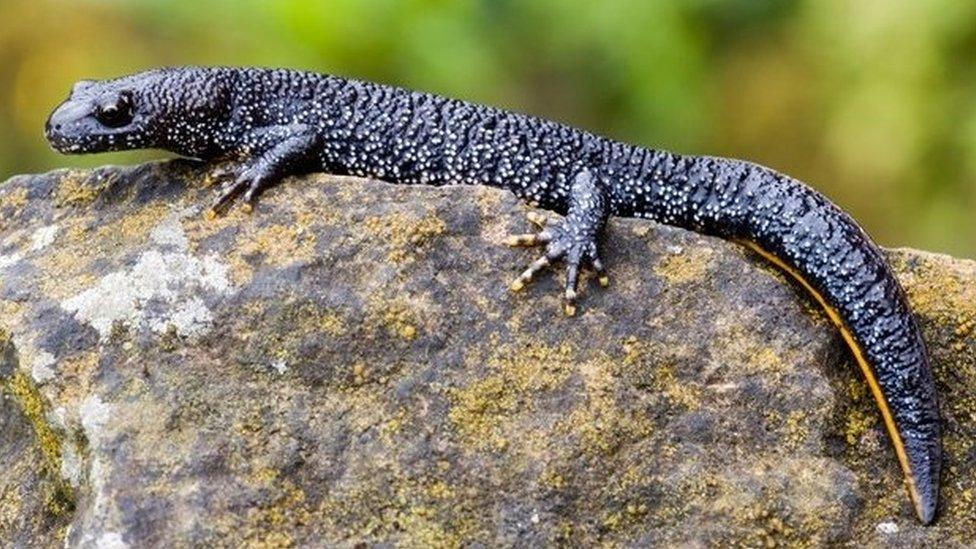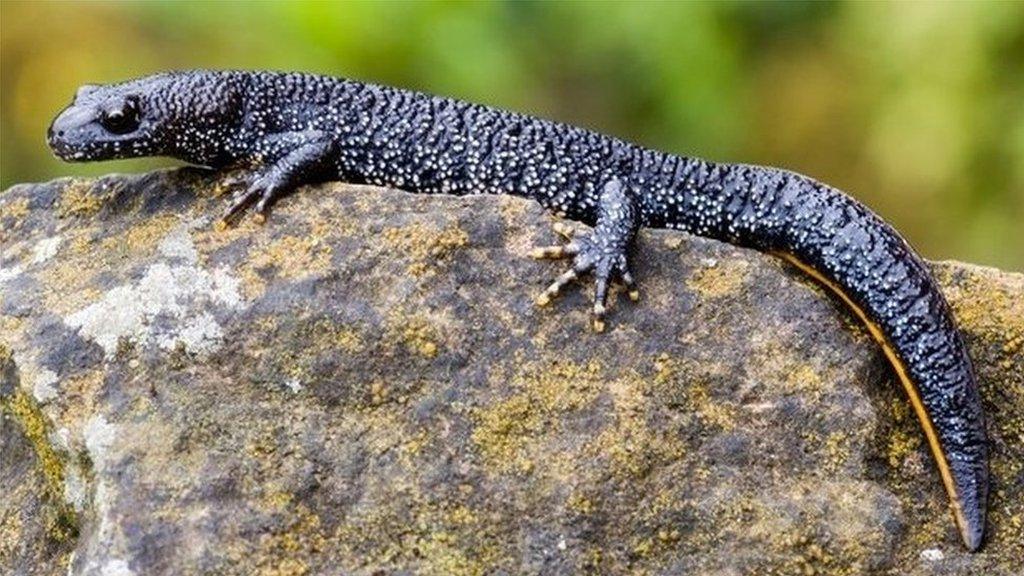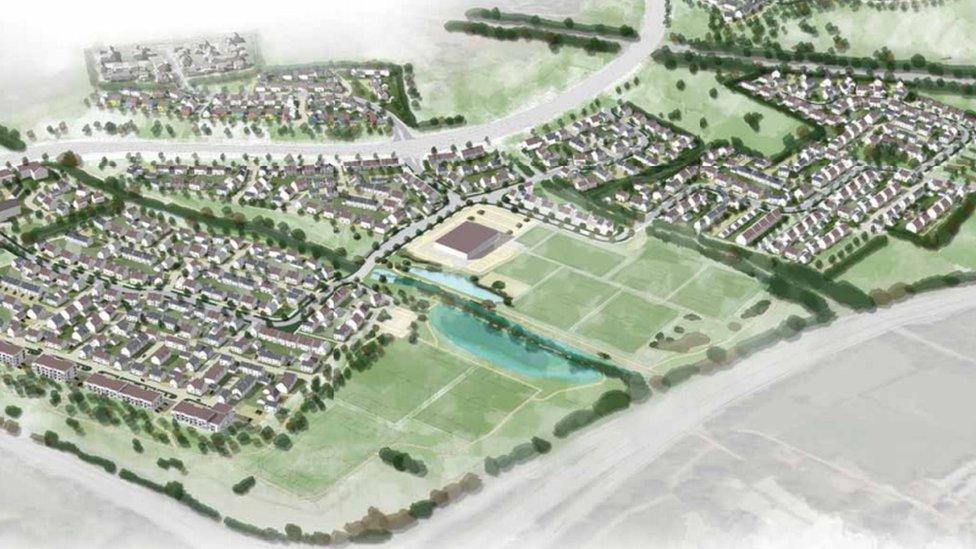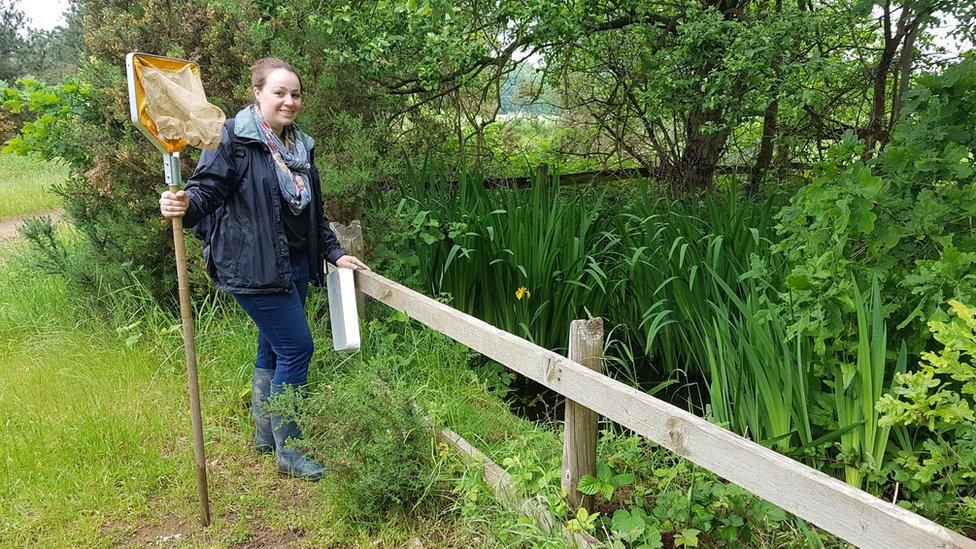'Newt risk map' scheme aims to help newts and developers
- Published

The great crested newt is found throughout Europe and is a protected species in the UK
A new scheme is being rolled out in Gloucestershire aimed at helping housing developers with great crested newt mitigation.
The amphibian is protected by law and must be removed before building works begin, which can cause costly delays.
NatureSpace has assessed districts and produced a newt "risk map", which it said could prevent the need for a time-consuming survey.
A nature charity said it could make sure newts were taken into account.
A development of 1,290 homes on the outskirts of Bristol was recently threatened with a delay because of the protected species.
NatureSpace chief executive Dr Tom Tew said: "The need to provide detailed survey information is a huge problem for development.
"If the survey season window is missed, the development can be postponed for a year, costing hundreds of thousands of pounds.
"The developer has a much quicker and simpler option that deals with all newt-related aspects of a project to be quantified at the beginning of the process, without requiring any surveys."

Great Crested Newts
Are the biggest newt species in the UK and have been around for approximately 40 million years
During the breeding season males develop a jagged crest which has a break at the base of the tail and females take on a "bulky" appearance
Adults grow up to 15cm (6in) in length
Their skin is black or dark brown with a rough, warty appearance and their underside is bright orange with irregular black blotches
Populations have disappeared from many sites across Europe due to habitat loss and intensification of farming practices
Source: Froglife, external

ARC Trust, a charity which specialises in amphibians and reptiles said: "We are keen to ensure that new approaches around licensing really provide benefits for great crested newts - with the aim of achieving long term improvements in the status of the species in an area.
"The district licensing scheme in Gloucestershire offers an opportunity to do this, by making sure the species is properly taken into account in the planning process while also providing a more effective use of funds from developers for newt conservation."
David Wilson Homes Southern, which has used the NatureSpace scheme, said it had been "time and cost-effective".
The areas which will be covered by the scheme include Cotswold District Council, Cheltenham Borough Council, Forest of Dean District Council, Gloucester City Council, Tewkesbury Borough Council and Stroud District Council.
- Published23 July 2019

- Published14 June 2019

- Published5 July 2018
